The global population crossed eight billion in 2024 and this, together with record temperatures across the globe and international interest in the SDGs, has led to increasing focus on food and water security and the modern technologies aimed at achieving it. In contrast, in many of the advanced economies around the world, labor shortages in these critical industries are coming to the fore due to aging societies and a lack of interest in farming and agriculture which along with shifts in climate have the potential to cause shortages in these key areas. Modern solutions to these issues are required with technologies such as Artificial Intelligence (AI), robotics and the Internet-of-Things (IoT) potentially providing the key to alleviating the dilemma.
Associate Professor Tofael Ahamed, a native of Bangladesh, is one researcher working hard toward finding solutions to these problems. He sat down with us on a sunny day in his office at the University of Tsukuba, with a backdrop of plants and greenery, to speak with us about his pathway to undertaking research on agricultural engineering in Japan, his current and future research topics including AI, automation and IoT, and his work towards promoting international brain circulation in his field.
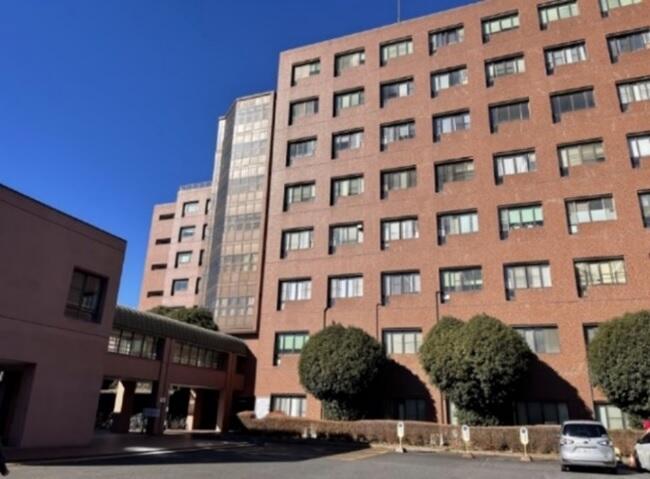
Sowing the seeds of success through research abroad
Associate Professor Tofael Ahamed was born in the capital of Bangladesh, Dhaka, a short journey north of the Ganges delta, the largest river delta in the world and a critically important agricultural region for the country. This is one of the most fertile regions on Earth and served as the backdrop to Ahamed's childhood and the inspiration for his love of gardening and interest in agricultural engineering. He spoke of his keen awareness of the importance of finding a balance between water, soil, plants, and climate, from which his interest in agricultural systems sprung.
"I have always loved gardening. Sometimes in research we cannot finish everything, it is this never-ending process, but when we try to grow things, it can help us to feel like we have 'finished' something. Because of this, I love gardening, and especially green spaces. I feel like they give me more energy to work." He said, speaking of the importance that gardening and green spaces had on his decision to advance into the field of agriculture. His office was also full of a wide variety of plants which reflected his keen interest in green spaces and raising plants.
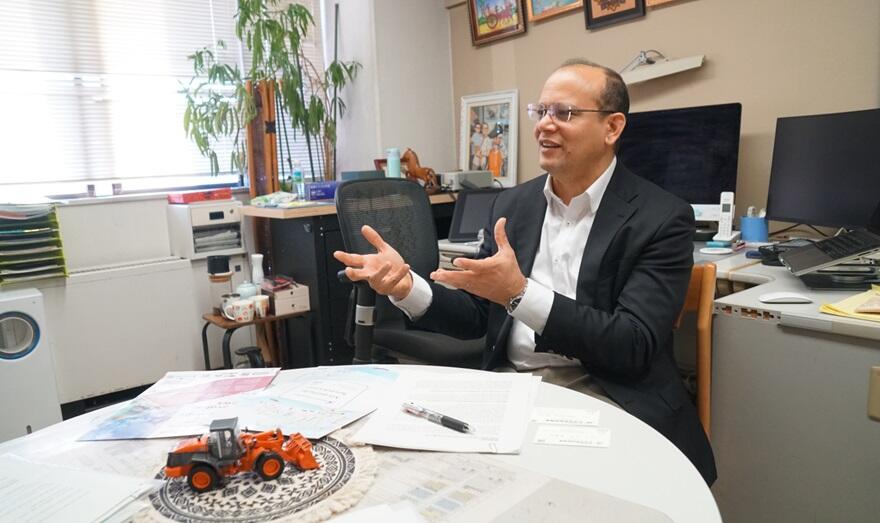
Tofael's first steps into research began at Bangladesh Agricultural University, a dedicated campus outside of Dhaka and one of the largest in Asia. He completed his undergraduate studies with a Bachelor of Science in Agricultural Engineering in 1996 and followed this up with a Masters in Farm Power and Machinery. Soon he found himself working as a lecturer at this same institution, and through his fascination with automation in machinery and sensing systems, a motivation to learn more about the situation in Japan was born.
On what drew him to Japan, Tofael stated, "I have always been fascinated by the development of automation and machinery in agriculture. I think if you talk about this topic, Japan pops into your mind first. Most of the machinery used in Japan is similar to Bangladesh, the size of the machines, we used Japanese tractors from Kubota for example, the distributions, the field sizes and so on, and these patterns are common across the Asia and Pacific region. So, I trained using machinery from Japan in my undergraduate studies and it made me very motivated to study here further." A meeting with a Japanese professor who was visiting his campus only increased his interest, and when the embassy in Bangladesh opened calls for the MEXT Government Scholarship to study in Japan, he jumped at the chance and was accepted to undertake a Ph.D. at Tsukuba University, another institution with a strong focus on agricultural studies. His supervisors during his time in Tsukuba, Professor Tomohiro Takigawa and Professor Koike Masayuki, were a particular highlight of his experience.
He completed his Ph.D. in 2006 and returned home to continue his role as an assistant professor at Bangladesh Agricultural University. He also maintained a position as a visiting foreign research fellow in Tsukuba. However, his time abroad drove him to further develop his skills, and in the middle of 2008, he found an opportunity to study as a post-doctoral researcher at the University of Illinois at Urbana-Champaign, in the United States. This experience allowed him to work in a large, international team doing research into biomass feedstock for green energy. He was particularly focused on remote sensing systems, and one highlight of the project was setting up a 40m tower remote sensing system using multispectral cameras to capture images that assisted farmers in understanding the optimal harvesting window for their crops.
It was at the completion of this position, when he returned to his position in Bangladesh, that an interesting chance to come back to Japan surfaced. "My supervisor, Professor Tomohiro Takigawa let me know about the Global-30 project that was beginning in Japan in 2010, and I happily took the opportunity to return. I like him very much and was excited to be back. When I came as a student there was little in the way of English at the University, but this project was aimed at increasing internationalization, and we got to work providing undergraduate, master, and Ph.D. courses in English to international students who had come to the University of Tsukuba from all over the world." Tofael assumed his current position as an Associate Professor in 2010. Since then, his team has increased to 20 members, with nine full-time Ph.D. students and seven undertaking master's courses. They are collectively working hard towards the development of engineering solutions for infield and inhouse crop and poultry monitoring systems.
Using smart agriculture to solve local problems
When it comes to the field of Agricultural Engineering a number of technologies and topics may come to mind, soil dynamics, water usage and crop production systems among many others. Tofael split the areas that he is currently investigating into three fields. "My background is in agricultural engineering, and I work on machinery that can be used for soil cultivation for plant production as well as automation for robotics or things that have minimal human involvement that support machinery systems. So, I basically focus on three domains. Medium to small scale robots with 'supervised autonomy,' machine learning systems and large area remote sensing."
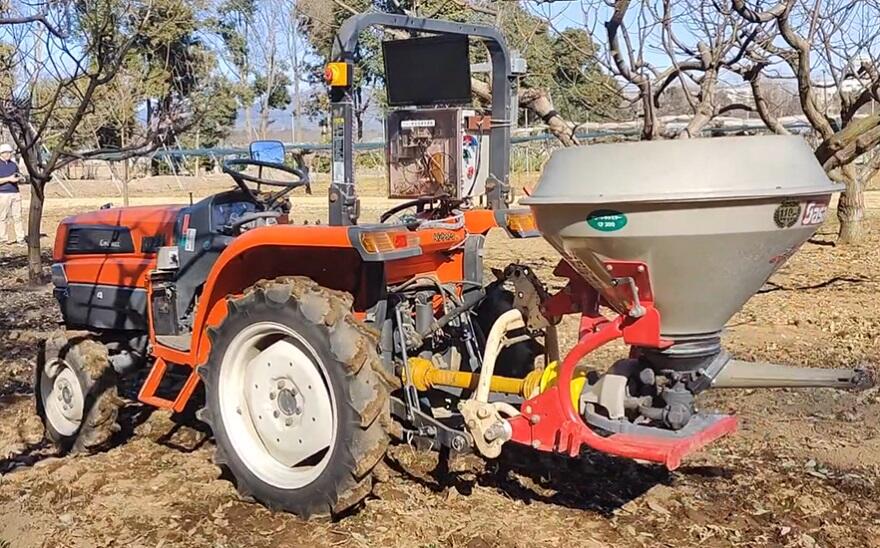
Provided by Associate Professor Tofael Ahamed
Supervised autonomy refers to robots that assist farmers with minimal input, where they simply need to observe. The second domain, machine learning, is being put to use in places such as greenhouses. Sensors and cameras placed near crops allow farmers to use AI to identify issues such as calcium deficiencies or humidity problems and quickly react to remedy them and develop early warning systems or sorting robots. Remote sensing covers an extremely wide scale, starting from remote satellite sensing which can cover small or wider areas. Unmanned Aerial Vehicles (UAVs) such as drones allow for a closer view, but from areas that are difficult for humans to reach, and finally ground-based remote sensing. "All 3 parts come together to create a field called 'Smart Agriculture,' but it is not that smart yet! It is an approach which aims to help out farmers." Tofael commented with a laugh.
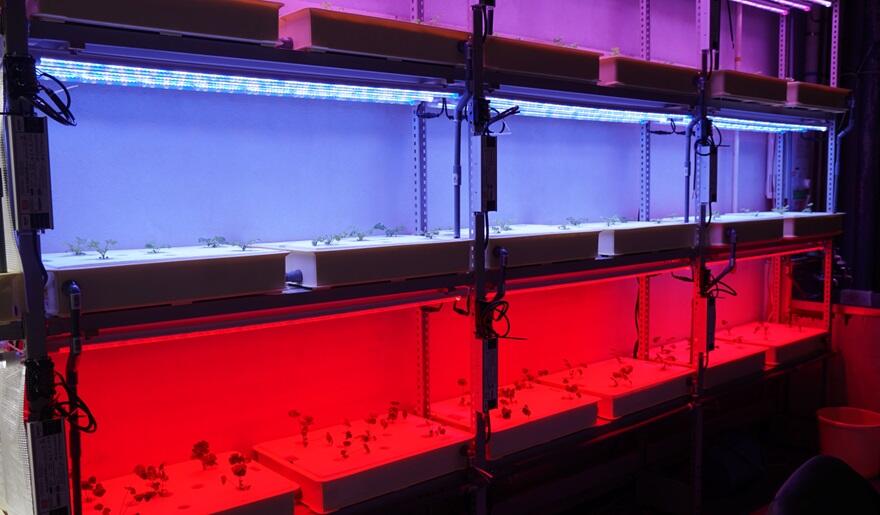
Different areas of the globe have different needs and issues, especially in the field of agriculture. However, a common theme is the shift towards urban lifestyles and a scarcity of young, motivated people working in rural areas. Other issues can include geography, differences in climate and global trends towards higher average temperatures. This is having an impact on rainfall and pollinator species. Tofael shared his insights from his time in 3 countries, "In my home country, climate is the biggest challenge. Flooding can cause huge problems in Bangladesh, but rivers carry large amounts of sediment, so there are also production advantages! In Japan there is a need to add a lot of fertilizer, and even more so in the US. Bangladesh is covered by a huge delta, with almost 50% of the country being rivers and their basins, in Japan over 70% of the country is covered in mountains. It's a huge challenge. The US is extremely large with some very harsh climates, but it is also very diverse and different crops can be grown in different regions."
There were a range of Japan-specific challenges he mentioned. Large migration of young people to urban centers is one issue. Another is that winter is harsh, meaning that food can only be grown for a small portion of the year, which is very different from Bangladesh. This has resulted in a huge dependence on imports. Greenhouses and low-cost plant housing are key initiatives to focus on for this. Arable land is another challenge. Ibaraki and Chiba prefectures are flat and ideal for growth, but many other parts of the country are extremely mountainous. Smart agriculture is key to aiding in finding solutions to these problems.
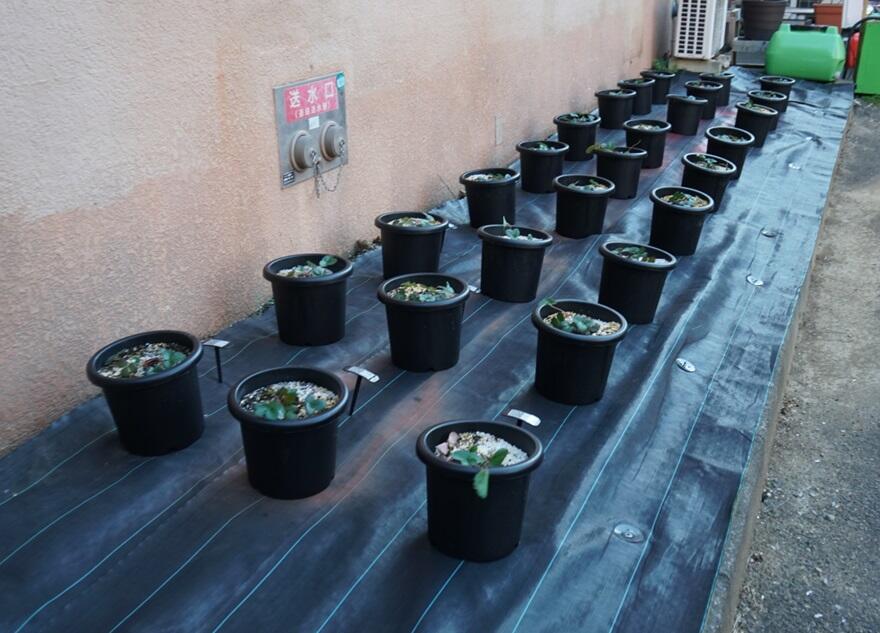
However, Tofael stressed that social approaches are also required to find solutions to things such as labor shortages. "Automation still needs some time before it can solve problems, and in the meantime, we should find social solutions. We need to bring entrepreneurs and innovators into agriculture and reward them for doing the job." He also commented that AI and automation will have an impact on city-based office jobs as well, and there is potential for these people to be brought into roles such as plant production managers that will help to solve agricultural issues in the future. Other suggestions included priority recommendations for the country's top universities for students involved in agriculture.
Looking into the future, Tofael has several research themes he wants to tackle. Taking on the challenge of adapting plant varieties to microclimates and climate change's impact on this came up, along with cross-disciplinary research with geneticists that has the potential to develop new field crop species. He is also looking at further developing autonomous technologies, robotics and sensing for field crops, orchards and controlled growth environments such as plant factories and greenhouses.
The importance of international brain circulation
With research experience across 3 extremely different countries, both in terms of culture and agricultural environments, Tofael serves as a wonderful example of the benefits of international brain circulation. Starting from his keen interest in Japanese machinery, he took a chance and traveled abroad to undertake research both in Tsukuba, Japan and in Illinois in the United States which had a profound impact on his career. He shared with us some of his impressions of the situation in each country.
Bangladesh has huge advantages in terms of climate. The soil is extremely fertile due to the Ganges delta and the highly productive sediments that flow all the way in from the Himalayas. However, it faces issues with management and effective identification of suitable human resources to fill roles involved with leading research projects and phase management. The United States has a very large geographic advantage, and different crops can be cultivated in the varied geography and climates that can be found there. However, they have issues with monocropping and heavy use of pesticides. The research environment in the US was a highlight for Tofael, with the outreach activities of the National Science Foundation having massive upsides, and heavily promoting team-based activities.
Japan faces a different suite of issues. In contrast to Bangladesh, the country lacks arable land, and the harsh winter makes large-scale production difficult. The work ethic in Japan, the leadership structures and selection systems for researchers are highlights. Despite this, he felt like the interaction between fields and specialties is an area that could be improved. Tofael expanded further on the benefits of Japan as a research base for an agricultural engineer, "I have found that Japanese innovation and research in machinery is of great help for Asian countries, and the country is one of the ideal models for agriculture at small farms in the region."
However, there were some challenges when he first arrived in the country in 2002. "There was definitely a learning curve when I first arrived in coping with the language barrier. I took a 6-month basic language course which helped me to gradually adjust to life." His supervisors were a massive help here and encouraged Tofael to join lab activities and a wide range of programs. He continued, "To enjoy your time and find success here, I strongly recommend learning the language and culture. Even today, I still enjoy reading and understanding the Japanese characters I see on signs and shops.."
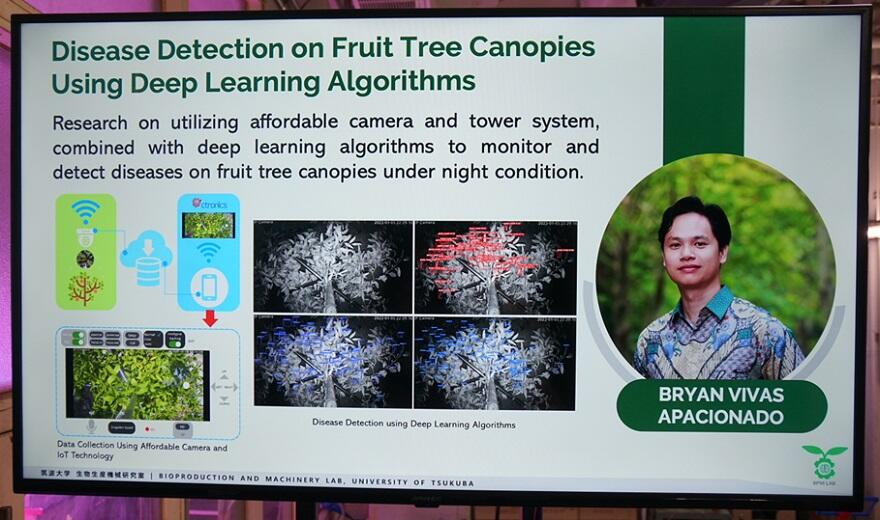
Tofael mentioned that he has been spending the last few years attempting to personally contribute to deepening collaboration between Japan and Bangladesh. He is working through a JST SATREPS project and a JSPS joint international project to collaborate with the Bangladesh Agricultural Research Council and supervise young researchers through their doctoral programs. He has also already had 6 Ph.D. students graduate under his supervision who have returned home to Bangladesh to take up teaching positions. On top of this, he continues to maintain a strong relationship with the Illinois team he worked with and has invited them to present their work at Tsukuba Global Science Week, which is an outreach activity held every year at the University of Tsukuba. Truly, a fantastic example of the benefits of international brain circulation.
Tofael had some advice for researchers looking to move into the agricultural engineering field. "Agriculture is a basic human need to achieve well-being and there is so much that you can contribute to your community, and to the world, through farming and agriculture. If we work together, we can find many solutions to sustainable and secure food production." This is especially true for those looking to partake in international brain circulation and undertake research in Japan.
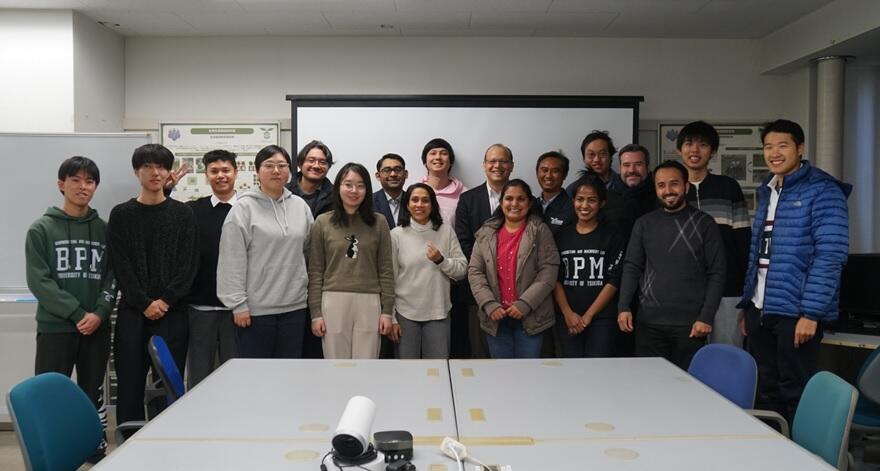
Growing into the future
Tofael spoke multiple times about his love of research and advising his students, and his desire to continue to serve a role in academia. He said "I feel a very strong connection with my students, and they have been contributing to our field in Japan. I hope to extend our efforts over the next 10 years and contribute globally." He also touched on some of the projects they are working on, particularly AI and IoT, where they are collaborating with local Japanese companies to improve speeds. The University of Tsukuba also operates industry-university collaborative activities, which he hopes to contribute further to in the future.
He also has plans to continue his work promoting international brain circulation through joint international research with countries such as Australia, Germany, the UK, Indonesia, Malaysia, Myanmar, Sri Lanka, Thailand and the Philippines. Another global project involves plant production in the environment of space to benefit astronauts. However, he was adamant that he wanted to focus on basic research and being involved in supervising his students in the lab.
As a researcher undertaking study into a critically important field, Associate Professor Tofael Ahamed is a wonderful example of the benefits of international brain circulation. His time working and undertaking research in three very different countries and the lessons he learned from his experiences there are helping to drive his current research towards outcomes that will be of use to farmers and the agricultural industry globally. We look forward to hearing more about his research endeavors, and perhaps from his very diverse group of students, in the future.
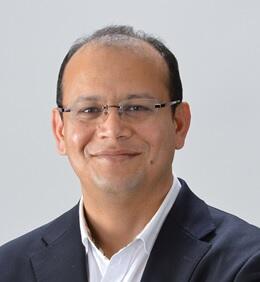
Profile
Tofael Ahamed
Associate Professor of the Institute of Life and Environmental Sciences at the University of Tsukuba.
After completing an undergraduate degree in Agricultural Engineering and a Master of Science in Farm Power and Machinery at Bangladesh Agricultural University, he moved into a teaching position at the same university. Following this he obtained a Ph.D. from the University of Tsukuba and conducted postdoctoral research at the University of Illinois at Urbana-Champaign, USA, after which he moved into his current role, where he concurrently serves as coordinator and administrative staff for a number of programs, in May 2010.
Produced by the Science Japan Editorial Team




